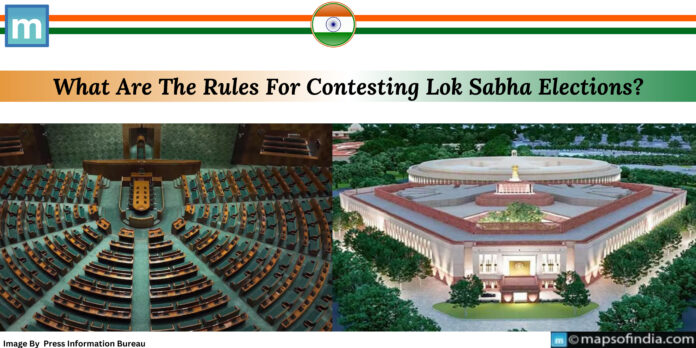A candidate may run in as many as two constituencies under the Representation of the People Act (RPA), 1951, but if elected from both, they may only hold one seat at a time.
Is there a limit?
There was no restriction on the number of constituencies a candidate might run from before introducing a 1996 amendment that created sub-section 33 (7) of the RPA, which permits a candidate to run from two seats. Nonetheless, regardless of the seats a candidate has been elected, Section 70 of the same Act states that a candidate may only hold one seat at a time. As a result, a bye-election from the seat a candidate leaves vacant must be held if they win two seats.
Additionally, to challenge Assembly polls from a specific State, one must be a voter in that State. However, any nationwide voter may register to vote in any seat to run for office in the Lok Sabha. Except in Assam, Lakshadweep, and Sikkim, an individual can run for office from any seat in India provided they are a registered voter in that constituency.
What is the age requirement to compete?
A person must be 25 years old to run in the Lok Sabha and Assembly elections and be 30 years old to join the Rajya Sabha or the State Legislative Council. There is no minimal educational need to run for public office in India. The requirements for candidates are as follows: they must be Indian citizens, be legal voters registered in a constituency within the nation, and have never been convicted of a crime carrying a sentence longer than two years.
How is it possible to disqualify a candidate?
A person will not be eligible to be selected for or elected to either House if they hold any paid positions with the Indian government or the government of any State; if a court has declared them to be mentally incompetent; if they are an undischarged insolvent; if they are not citizens of India or have voluntarily obtained the citizenship of another country.
A person found guilty of any crime and sentenced to two years or more in jail will not be eligible to run for office under the RPA Act. After the conviction and while his appeal is being processed, this person is barred from running for office, even if he is bond-free. No matter the penalty’s severity, a conviction for some criminal offences may result in disqualification.
What are some of the modifications that the ECI has made to its applicant screening process over time?
The ECI has modified political party financing guidelines during elections. Reduced monetary donation limit is ₹20,000 – ₹2,000 under the new regulations. The Supreme Court abandoned the Electoral Bond Scheme in 2024 after it was announced in January 2018 and permitted anonymous contributions to restrict the use of cash. Cash transit in bank cars after sundown has been prohibited by the ECI for the 2024 polls. Along with keeping an eye on cash, alcohol, and drug trafficking, the Commission also keeps track of unscheduled chartered flights.




